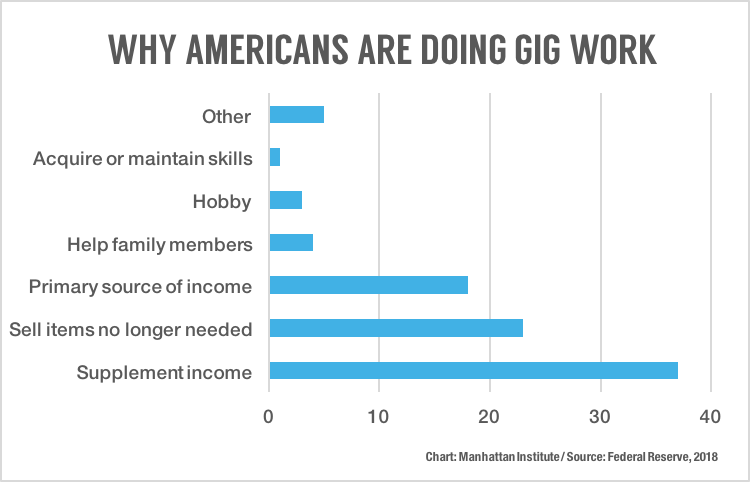
Gig work has become part of our lives, whether you are a gig worker—like 30% of Americans—or if you take an Uber. It seems like gig work is everywhere, but the share of Americans doing full-time contract work has been stable over the last 15 years. In fact, most gig workers do it part-time, to supplement their primary income and insure against income shocks. According to the Fed gig work is especially important to low income workers who face more income variability. What makes gig work valuable is its flexibility. It needn’t interfere with your primary job, child-care needs, or even a job search. This is why the well-intentioned movement to make gig work more like regular work, with predictable hours and pay, actually makes income riskier for many households.
Allison Schrager is a senior fellow at the Manhattan Institute.
Interested in real economic insights? Want to stay ahead of the competition? Each weekday morning, e21 delivers a short email that includes e21 exclusive commentaries and the latest market news and updates from Washington. Sign up for the e21 Morning eBrief.
Photo by Petri Oeschger/iStock
